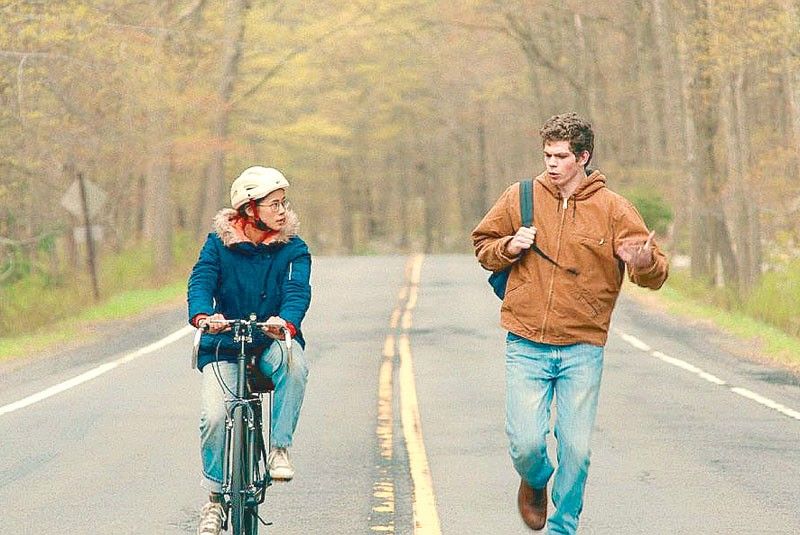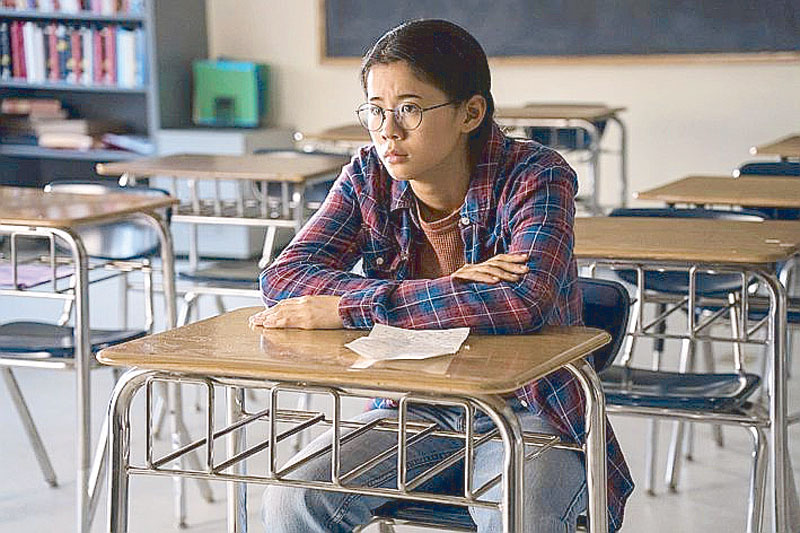Game on, Aster Flores

MANILA, Philippines — Love isn’t just an act, or just a feeling. More than that, it’s a system of belief. As a human race, we’ve built entire myths around the missing halves of our souls: our perfect match to complement our incomplete selves. This idea has been passed on through oral tradition, and reinforced through the arts (however good or bad). We’ve seen all those John Hughes and Nicholas Sparks movies, but as we know, things don’t always pan out like they do on the silver screen. Life happens, and sometimes we come out from the other side a little number than before. In The Half of It, director Alice Wu reminds us of those days when we weren’t as cynical, and frankly, weren’t as wise.
In the small fictional town of Squahamish, we meet a shy and bookish high school senior named Ellie Chu. Like everyone else, Ellie’s just trying to get by. She mostly keeps to herself, plays piano for her church choir, and puts up with the bullying she gets for being one of the few Chinese people in her school. On the side, she runs a small business ghostwriting school essays to support herself and her single dad. This is her life, and it might have stayed that way were it not for a certain jock named Paul Munsky.

The well-intentioned but naïve Paul is hopelessly in love with Aster Flores. The thing is, they’ve never really spoken, so he comes to Ellie to help him pen a love letter, and Ellie reluctantly agrees. Thus ensues a dance between the words and worlds of Ellie and Aster, who turns out to be so much more than meets the eye. Through their letters, the two engage in banter over literature and art, and slowly but surely, Ellie starts to fall for Aster, too. That’s where it gets complicated. Paul and Ellie have opposing views on romance. They talk about what it really means to love someone, whether the value lies in the innate connection, or the simple act of trying. With their strange arrangement at times growing tense, they try to navigate their own feelings for Aster. Something even stranger happens, as Paul and Ellie become best friends.
Alice Wu’s previous film, Saving Face, explored the friendship that can exist between a straight man and a queer woman, something she admits is semi-autobiographical. In The Half of It, she takes it further. The love between Paul and Ellie exists as the backbone of the film, both wholesome and tender. There’s a near-perfect dynamic between the three main characters, who all complement one another in their sensibilities. Ellie’s “thing” is literature and music, Aster’s is visual arts, while Paul favors athletics and cuisine. Together, they all help each other grow and appreciate their own gifts as they slowly become the full selves they’re meant to be.
In many ways, The Half of It is a love story, but not in the way that you’d expect. In our roundtable interview, actress Leah Lewis, who plays Ellie, said, “Happy endings are about finding yourself and being content with yourself and finding friends along the way. Finding your way back to your family. It’s about ‘the journey.’ I feel like Ellie walked away from this with such a huge, better sense of self, and I don’t think there’s anything better than that.” You don’t always end up getting the girl, but sometimes you’ll walk away with something much better. That’s the reality about growing up for most queer people. A good number of us only come out and explore relationships later in life, and that’s what could make the film more resonant for LGBT+ audiences.

Director Wu also described how The Half of It was originally meant to be about people in their 20s, but eventually opted to change the setting to high school as the original narrative was “too close” to her. She says, “I don’t really write from a place — like, take something that happened in my life and then literally write that. I think I generally try to find the emotional question I’m trying to answer.” There’s definitely a sense of self-insertion in her films: her experiences as a queer Asian-American woman shine through beautifully in the little details of her writing. However, in The Half of It, there are some missteps in portraying the Gen-Z high school experience: the plot tends to get overcomplicated in the second act. All of this is forgivable due to the overall charm of the movie. It’s clear she isn’t going for a portrayal that is necessarily accurate, but rather, emotionally true.
All in all, Wu’s sophomore effort brings a fresh take to the coming-of-age genre. She captures the feeling of being 17 in a way that doesn’t take itself too seriously, while touching upon more serious themes like homophobia and familial pressure. There are some familiar elements from Saving Face that certainly do service the plot, but also prove that the director is ready to explore new territory. Still, The Half of It is one of Netflix’s best original films. The plot takes risks in all the right places, showing a different kind of love story that justifies our cultural obsession with romance in a unique way.
Rating: A-
* * *
The Half Of It streams on Netflix.















